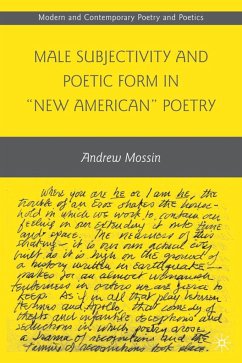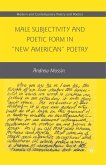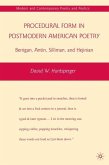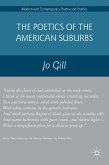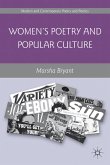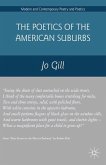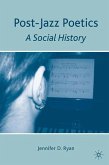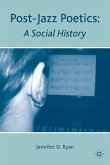"Male Subjectivity and Poetic Form in "New American" Poetry offers an important study of masculinity in postwar poetry, showing the close relationship of innovative form, community, and collaborative debate. Mossin s treatment of Duncan, Blaser, Olson, and Mackey complicates the politics of the lyric, seeing the form not as an unmediated access to identity but a site of socially inflected idiolects and gender indeterminacy. Building on key theoretical interrogations of gender performativity, Mossin explores the porous border between marginal identities and textual margins." - Michael Davidson, author of Guys Like Us: Citing Masculinity in Cold War Poetics
"This remarkable and at times brilliant book offers detailed case-studies not only to investigate the construction of maleness, but to open up the much wider territory invoked by vexed questions: the nature of translation, the nature and role of lyric, the formation of community in an intransigently provisional, polyvocal, and distressed world. Mossin threads his way through the complex entanglement of poetic career, male subjectivity, and formalist concerns, as much to teach us how to read these difficult and always interesting poets as to reach any tentative conclusions. Essential reading." - Peter Quartermain, author of Disjunctive Poetics from Gertrude Stein and Louis Zukofsky to Susan Howe and editor of the forthcoming Collected Poems and Plays of Robert Duncan
"For several decades now, feminist critics have investigated the silences and ruptures that paradoxically inhabit poetry written by women. Poet-critic Andrew Mossin turns his attention to the silences that fall on male poets as they embark on their careers. Like many of his feminist colleagues, and building on the important work on masculinity by Michael Davidson, Mossin finds that male poets find their way by constructing (often vexed) communities with other poets. His book accomplishes many things at once, offering thereader of contemporary American poetry rigorous scholarship; gender-based critiques; formal analysis; incisive close-readings of poetry by Olson, Duncan, Blaser, and Mackey; and an eloquent statement of his own poetics." - Susan M. Schultz, Professor of English, University of Hawai`i-Manoa
"This remarkable and at times brilliant book offers detailed case-studies not only to investigate the construction of maleness, but to open up the much wider territory invoked by vexed questions: the nature of translation, the nature and role of lyric, the formation of community in an intransigently provisional, polyvocal, and distressed world. Mossin threads his way through the complex entanglement of poetic career, male subjectivity, and formalist concerns, as much to teach us how to read these difficult and always interesting poets as to reach any tentative conclusions. Essential reading." - Peter Quartermain, author of Disjunctive Poetics from Gertrude Stein and Louis Zukofsky to Susan Howe and editor of the forthcoming Collected Poems and Plays of Robert Duncan
"For several decades now, feminist critics have investigated the silences and ruptures that paradoxically inhabit poetry written by women. Poet-critic Andrew Mossin turns his attention to the silences that fall on male poets as they embark on their careers. Like many of his feminist colleagues, and building on the important work on masculinity by Michael Davidson, Mossin finds that male poets find their way by constructing (often vexed) communities with other poets. His book accomplishes many things at once, offering thereader of contemporary American poetry rigorous scholarship; gender-based critiques; formal analysis; incisive close-readings of poetry by Olson, Duncan, Blaser, and Mackey; and an eloquent statement of his own poetics." - Susan M. Schultz, Professor of English, University of Hawai`i-Manoa

